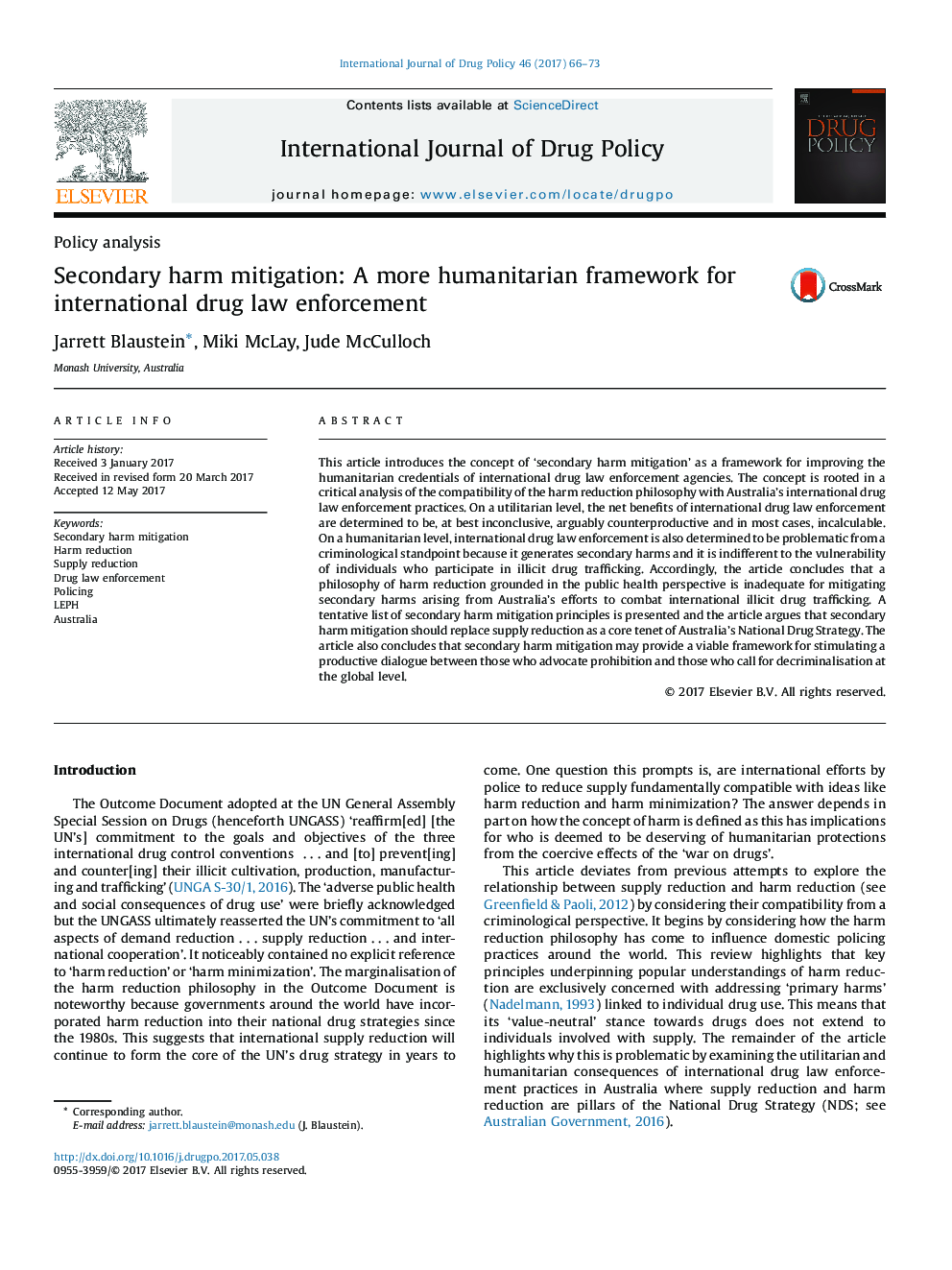| Article ID | Journal | Published Year | Pages | File Type |
|---|---|---|---|---|
| 5120692 | International Journal of Drug Policy | 2017 | 8 Pages |
This article introduces the concept of 'secondary harm mitigation' as a framework for improving the humanitarian credentials of international drug law enforcement agencies. The concept is rooted in a critical analysis of the compatibility of the harm reduction philosophy with Australia's international drug law enforcement practices. On a utilitarian level, the net benefits of international drug law enforcement are determined to be, at best inconclusive, arguably counterproductive and in most cases, incalculable. On a humanitarian level, international drug law enforcement is also determined to be problematic from a criminological standpoint because it generates secondary harms and it is indifferent to the vulnerability of individuals who participate in illicit drug trafficking. Accordingly, the article concludes that a philosophy of harm reduction grounded in the public health perspective is inadequate for mitigating secondary harms arising from Australia's efforts to combat international illicit drug trafficking. A tentative list of secondary harm mitigation principles is presented and the article argues that secondary harm mitigation should replace supply reduction as a core tenet of Australia's National Drug Strategy. The article also concludes that secondary harm mitigation may provide a viable framework for stimulating a productive dialogue between those who advocate prohibition and those who call for decriminalisation at the global level.
